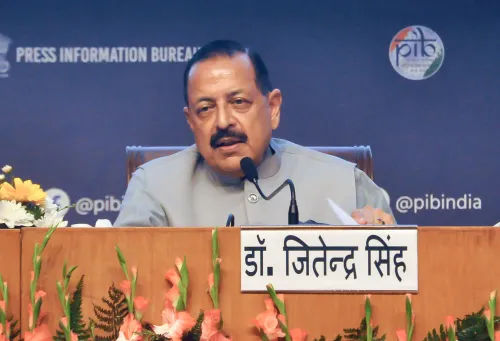How Are India’s Organic Exports to Australia Surging?

Synopsis
Key Takeaways
- India’s organic exports to Australia reached $8.96 million.
- Total export volume was 2,781.58 metric tonnes.
- Key products include psyllium husk, coconut milk, and rice.
- The Mutual Recognition Arrangement enhances trust between both nations.
- Farmers can expect better livelihoods due to higher organic prices.
New Delhi, Sep 25 (NationPress) India’s organic exports to Australia have soared to $8.96 million in the fiscal year 2024-25, with a total export volume of 2,781.58 metric tonnes. The primary products driving this growth include psyllium husk, coconut milk, and rice, as reported by the government.
The two nations have formalized the Mutual Recognition Arrangement (MRA) for organic products, showcasing their mutual commitment within the India–Australia Economic Cooperation and Trade Arrangement (ECTA), thereby reinforcing their strategic partnership.
This MRA encompasses organic products cultivated and processed within the respective territories, covering unprocessed plant products (excluding seaweed, aquatic plants, and greenhouse crops), processed foods with one or more plant-based ingredients, and wine.
According to the Commerce Ministry, “This arrangement signifies the trust and assurance our two nations place in one another’s organic standards and certification frameworks. The MRA aims to streamline compliance requirements and open new avenues for farmers and exporters.”
Commerce Secretary Sunil Barthwal emphasized the importance of the National Programme for Organic Production (NPOP) in establishing stringent standards for India’s organic ecosystem while ensuring transparency and credibility in the organic sector.
He pointed out that organic products should not just be seen as certifications but as indicators of a holistic system that maintains strict standards, preserves integrity, and secures farmers’ incomes. With organic produce fetching prices 30-40% higher, farmers can enjoy enhanced livelihoods.
He also highlighted the need for proper labeling, penalties, and regulatory measures to guarantee a clear distinction between organic and non-organic products, while advocating for increased capacity building, training, and advisory support for farmers.
“Organic products should be genuinely certified organic, with every participant in the supply chain taking pride in sustaining that integrity,” Barthwal asserted.
Tom Black, First Assistant Secretary at the Department of Agriculture, Fisheries and Forestry in Australia, commended India’s rapidly expanding organic sector and the Indian diaspora’s role in bolstering organic trade between the two countries.
He noted that Australia boasts 53 million hectares of organic farmland and emphasized the trade opportunities available in cereals, tea, spices, beverages, and wines.









